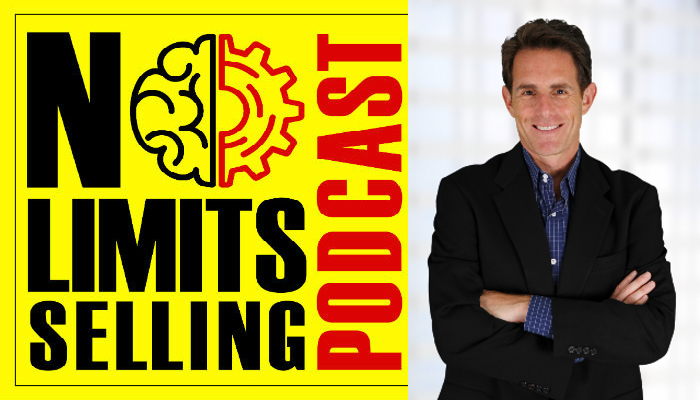Michael Dalis on Accelerating Revenue Growth
On Episode 111 of The No Limits Selling Podcast, we have Michael Dalis, Sales Growth Consultant/Sales and Pitch Coach/Workshop Facilitator at DRIVE Sales Consulting, LLC.
We are a sales consulting firm that supports B2B companies, primarily in the financial services, professional services and technology industries. We advise clients on how to accelerate revenue growth through more effective sales performance.
With over 30 years of experience and a unique talent for engaging the sales force, we help organizations achieve their sales potential through a mix of talent assessment, process consulting, training, coaching and keynotes.

Contact Michael:
[EDITOR’S NOTE: This podcast is sponsored by No Limits Selling. It is a fun, fast-paced podcast that delivers hard-fought business advice that you can implement today to improve your sales and performance]
Interested In Our Real Estate Coaching Services? Explore Our Website: Link
Feeling Not Well Today? You Can Use Our Mindset Boosters App To amp Up Your Mood: Link
Find us on Social Media:
LinkedIn | Facebook community | Instagram
Like what do you listen to? Subscribe to our podcast!
Ready to become fearless? We can help you become fearless in 60 days so you accomplish more in your career Schedule A 15 min Call with Umar
Summary
Introduction and Background
The podcast begins with host Umar Hameed introducing Michael Dalis, a Sales Growth Consultant, Sales and Pitch Coach, and Workshop Facilitator at DRIVE Sales Consulting, LLC. Michael is the author of the book "Sell Like a Team: The Blueprint for Building Teams That Win Big at High-Stakes Meetings." The book provides insights into how to effectively sell as a team, particularly in high-stakes situations where the outcome of a meeting can significantly impact the business.
The Importance of Team Selling
Michael Dalis emphasizes the importance of team selling. He explains that it's not just about having multiple people in a meeting, but about coordinating and integrating the efforts of the team to deliver a unified message to the client. He stresses the need for preparation and practice to ensure that everyone on the team is on the same page and can effectively contribute to the meeting.
Sales Leadership
The conversation then shifts to the topic of sales leadership. Michael believes that a good sales leader should be able to guide their team through the sales process, helping them understand what they need to do and why they need to do it. He discusses the role of a sales leader in fostering a culture of continuous learning and improvement within the team, which is crucial for achieving sales success.
Practical Tips for Sales Teams
Towards the end of the podcast, Michael provides some practical tips for sales teams. He suggests that teams should focus on understanding the client's needs and crafting a solution that addresses those needs. He also advises teams to be adaptable, as every client and situation is unique. This adaptability, combined with a deep understanding of the client's needs, can help sales teams deliver more effective pitches and close more deals.
Conclusion
In this insightful podcast, Michael Dalis, a seasoned Sales Growth Consultant, Sales and Pitch Coach, and Workshop Facilitator at DRIVE Sales Consulting, LLC, shares his expertise on team selling and sales leadership. He underscores the importance of team selling, emphasizing that it's not merely about the number of people in a meeting, but about the coordinated effort to deliver a unified message to the client. Dalis highlights the crucial role of sales leaders in guiding their teams through the sales process and fostering a culture of continuous learning and improvement. He offers practical advice for sales teams, urging them to understand their client's needs deeply, craft tailored solutions, and remain adaptable to varying situations. The podcast encapsulates Dalis's wealth of experience, providing valuable insights for sales teams aiming to enhance their performance and succeed in high-stakes meetings.
Questions & Answers
Who is Michael Dalis?
What is the focus of Michael Dalis's book?
What is the importance of team selling according to Michael Dalis?
What role does a sales leader play in a sales team?
What are some practical tips for sales teams from Michael Dalis?
What are the key takeaways from the podcast with Michael Dalis?
Don’t miss this opportunity to transform your real estate career with one-on-one coaching. As an experienced real estate coach, I, Umar Hameed, am dedicated to helping you unlock your full potential and achieve your real estate goals. To learn more about who am I and my clients ↓
If you’re ready to take the next step, book an appointment with me today and begin your journey toward success in the real estate industry.
